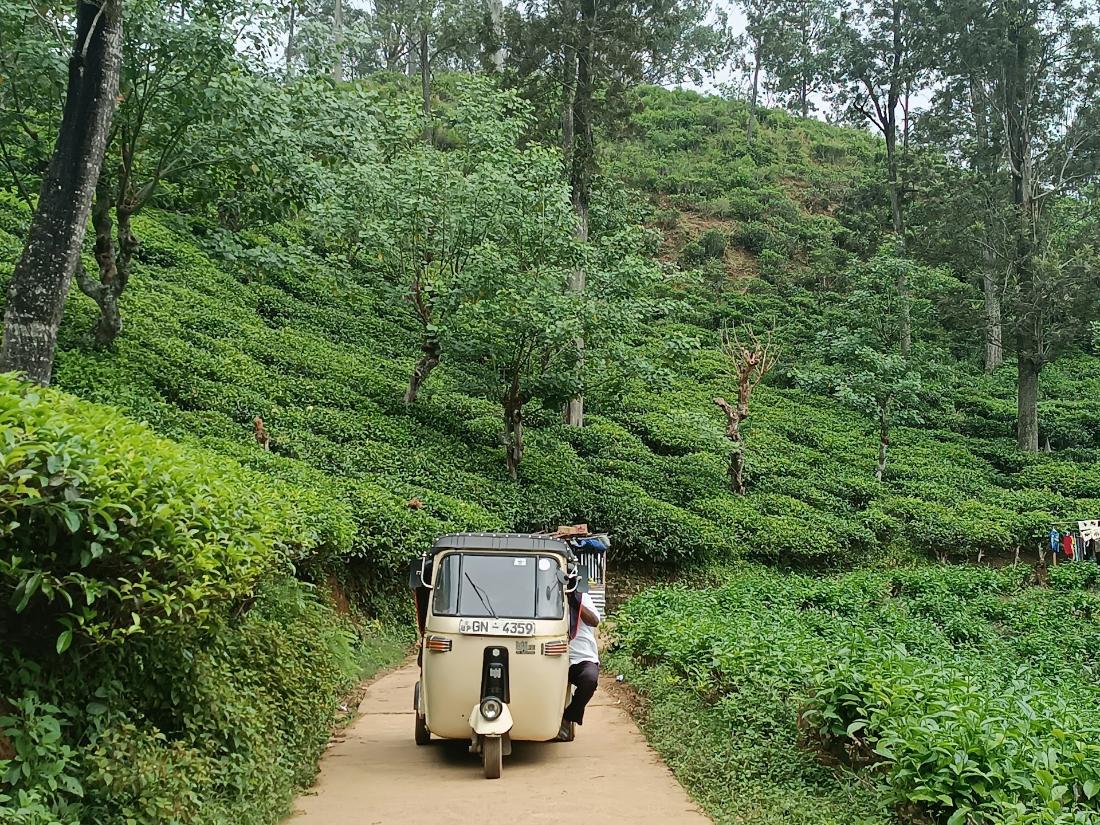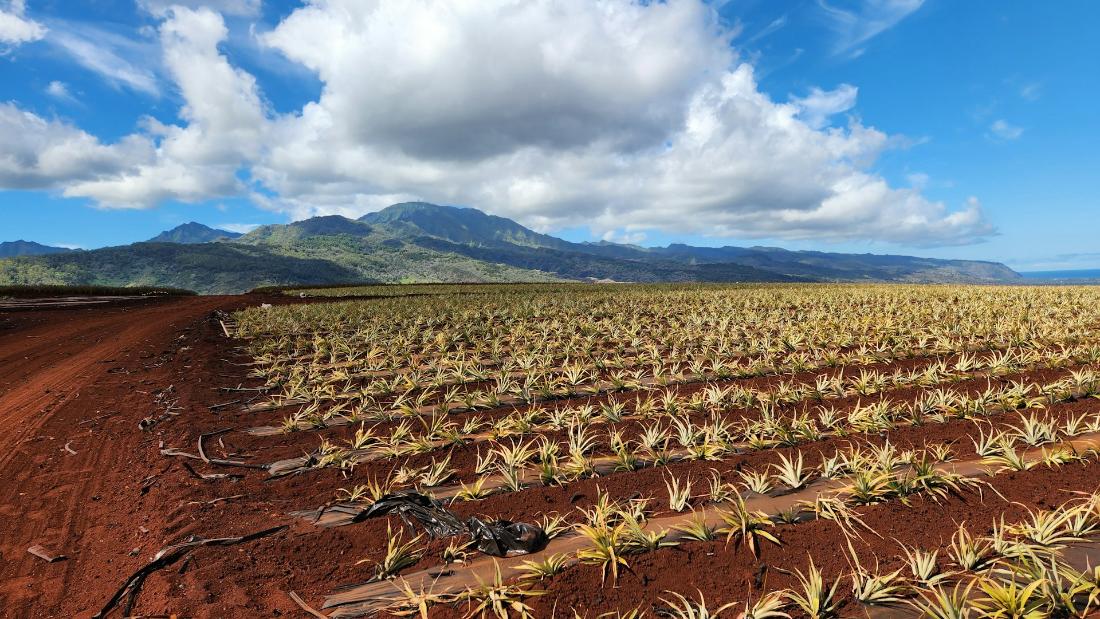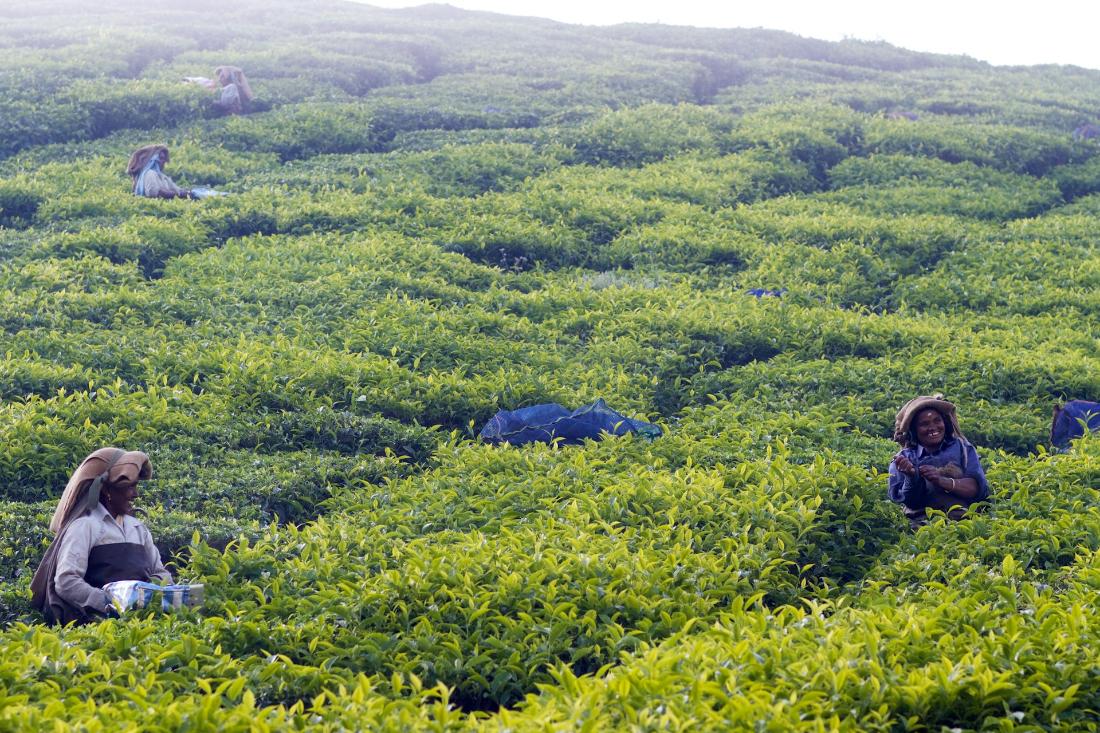Garden
Plantation Contractors in Malaysia: The Unsung Heroes of Agricultural Prosperity
May 16 2025
The golden hues of sunrise stretch across endless rows of oil palm trees in Negeri Sembilan as workers begin their morning rounds, their practiced hands moving with the quiet efficiency that comes from generations of agricultural knowledge. This daily rhythm of cultivation represents the vital work of Malaysia's plantation contractors - the specialized professionals who form the backbone of the nation's agricultural economy. From the vast palm oil estates of Sabah to the rubber plantations of Perak, these experts combine traditional farming wisdom with cutting-edge technology to maintain Malaysia's position as a global leader in commodity production.
The Vital Role of Plantation Contractors
In Malaysia's agricultural landscape, plantation contractors serve as the crucial link between landowners and bountiful harvests. Unlike small-scale farmers tending family plots, these professionals specialize in large-scale cultivation of key crops including oil palm, rubber, and increasingly, high-value tropical fruits like durian and pineapple. Their expertise extends far beyond basic planting and harvesting to encompass every aspect of plantation management throughout a crop's entire lifecycle.
The best Malaysian plantation contractors understand they're not just growing crops - they're stewarding the land for future generations. They balance immediate productivity with long-term sustainability, implementing practices that protect soil health while maximizing yields. This delicate equilibrium has become increasingly important as global demand grows for responsibly-produced agricultural commodities. Their work directly supports Malaysia's position as the world's second-largest palm oil producer and a major rubber exporter - industries that collectively employ hundreds of thousands of Malaysians and contribute significantly to national GDP.
A Day in the Life of Plantation Operations
A typical morning on a well-run plantation reveals the complex choreography of modern agricultural contracting. Teams of skilled workers fan out across the estate, each group performing specialized tasks timed to the crop's growth cycle and weather conditions. Harvesting crews move through mature oil palm stands using hydraulic poles to carefully cut ripe fruit bunches without damaging the trees. Young palm maintenance teams inspect saplings for signs of nutrient deficiency or pest infestation, making precise adjustments to fertilization regimes.
Meanwhile, irrigation specialists monitor soil moisture levels, making calculated decisions about water application to conserve resources while ensuring optimal growth. Road maintenance crews grade access paths in preparation for the heavy trucks that will transport the day's harvest to processing mills. Every activity follows carefully planned schedules that account for seasonal variations, commodity prices, and long-term plantation health.
This operational complexity requires contractors to maintain diverse skill sets among their workforce. Experienced supervisors can identify nutrient deficiencies just by examining leaf coloration. Skilled equipment operators maneuver specialized harvesters through dense planting rows with centimeter precision. Logistics coordinators optimize collection routes to minimize fuel consumption and maximize daily yields.
The Vital Role of Plantation Contractors
In Malaysia's agricultural landscape, plantation contractors serve as the crucial link between landowners and bountiful harvests. Unlike small-scale farmers tending family plots, these professionals specialize in large-scale cultivation of key crops including oil palm, rubber, and increasingly, high-value tropical fruits like durian and pineapple. Their expertise extends far beyond basic planting and harvesting to encompass every aspect of plantation management throughout a crop's entire lifecycle.
The best Malaysian plantation contractors understand they're not just growing crops - they're stewarding the land for future generations. They balance immediate productivity with long-term sustainability, implementing practices that protect soil health while maximizing yields. This delicate equilibrium has become increasingly important as global demand grows for responsibly-produced agricultural commodities. Their work directly supports Malaysia's position as the world's second-largest palm oil producer and a major rubber exporter - industries that collectively employ hundreds of thousands of Malaysians and contribute significantly to national GDP.
A Day in the Life of Plantation Operations
A typical morning on a well-run plantation reveals the complex choreography of modern agricultural contracting. Teams of skilled workers fan out across the estate, each group performing specialized tasks timed to the crop's growth cycle and weather conditions. Harvesting crews move through mature oil palm stands using hydraulic poles to carefully cut ripe fruit bunches without damaging the trees. Young palm maintenance teams inspect saplings for signs of nutrient deficiency or pest infestation, making precise adjustments to fertilization regimes.
Meanwhile, irrigation specialists monitor soil moisture levels, making calculated decisions about water application to conserve resources while ensuring optimal growth. Road maintenance crews grade access paths in preparation for the heavy trucks that will transport the day's harvest to processing mills. Every activity follows carefully planned schedules that account for seasonal variations, commodity prices, and long-term plantation health.
This operational complexity requires contractors to maintain diverse skill sets among their workforce. Experienced supervisors can identify nutrient deficiencies just by examining leaf coloration. Skilled equipment operators maneuver specialized harvesters through dense planting rows with centimeter precision. Logistics coordinators optimize collection routes to minimize fuel consumption and maximize daily yields.
Technology Transforming Traditional Practices
Modern plantation contracting has evolved dramatically from its labor-intensive origins. Today's leading firms employ sophisticated technologies that increase efficiency while reducing environmental impact. Satellite imagery and drone surveys provide real-time monitoring of crop health across thousands of hectares, identifying problem areas before they impact overall productivity. Soil sensors distributed throughout estates feed data to centralized systems that calculate precise fertilizer requirements down to individual planting zones.
Harvesting technology has seen particularly remarkable advances. Modern hydraulic fruit bunch cutters allow efficient harvesting of tall oil palms without damaging trees or requiring dangerous climbing. Some progressive plantations are testing autonomous harvesting machines that use artificial intelligence to identify ripe fruit bunches and harvest them with minimal human intervention.
Digital record-keeping systems have replaced the traditional notebooks and memory-based tracking of previous generations. Cloud-based platforms now track everything from individual tree productivity to worker output, creating valuable datasets that inform better management decisions. These technological investments require significant capital but pay dividends through improved yields, reduced waste, and better resource allocation.
Sustainability at the Core of Modern Operations
As global scrutiny of plantation agriculture intensifies, Malaysian contractors have taken leading roles in developing sustainable practices. The Malaysian Sustainable Palm Oil (MSPO) certification program has driven widespread adoption of environmentally responsible methods that protect biodiversity while maintaining productivity.
Innovative contractors implement integrated pest management systems that significantly reduce chemical use by encouraging natural predators. Mill effluent treatment systems transform waste products into biogas and organic fertilizers, creating circular economies within plantation operations. Zero-burning land clearing techniques preserve soil microbiology and prevent the air pollution associated with traditional slash-and-burn methods.
Many forward-thinking contractors now maintain dedicated conservation areas within plantations, protecting wildlife corridors and waterways while still achieving economic yields from cultivated areas. These measures not only meet certification requirements but often improve long-term productivity by maintaining healthier ecosystems.
Climate change adaptation has become another critical focus area. Contractors are developing drought-resistant cultivation techniques, fire prevention systems, and water management strategies to address increasingly unpredictable weather patterns. Some are experimenting with carbon sequestration initiatives that could generate additional revenue while combating global warming - positioning Malaysian plantations as part of the climate solution rather than the problem.
Modern plantation contracting has evolved dramatically from its labor-intensive origins. Today's leading firms employ sophisticated technologies that increase efficiency while reducing environmental impact. Satellite imagery and drone surveys provide real-time monitoring of crop health across thousands of hectares, identifying problem areas before they impact overall productivity. Soil sensors distributed throughout estates feed data to centralized systems that calculate precise fertilizer requirements down to individual planting zones.
Harvesting technology has seen particularly remarkable advances. Modern hydraulic fruit bunch cutters allow efficient harvesting of tall oil palms without damaging trees or requiring dangerous climbing. Some progressive plantations are testing autonomous harvesting machines that use artificial intelligence to identify ripe fruit bunches and harvest them with minimal human intervention.
Digital record-keeping systems have replaced the traditional notebooks and memory-based tracking of previous generations. Cloud-based platforms now track everything from individual tree productivity to worker output, creating valuable datasets that inform better management decisions. These technological investments require significant capital but pay dividends through improved yields, reduced waste, and better resource allocation.
Sustainability at the Core of Modern Operations
As global scrutiny of plantation agriculture intensifies, Malaysian contractors have taken leading roles in developing sustainable practices. The Malaysian Sustainable Palm Oil (MSPO) certification program has driven widespread adoption of environmentally responsible methods that protect biodiversity while maintaining productivity.
Innovative contractors implement integrated pest management systems that significantly reduce chemical use by encouraging natural predators. Mill effluent treatment systems transform waste products into biogas and organic fertilizers, creating circular economies within plantation operations. Zero-burning land clearing techniques preserve soil microbiology and prevent the air pollution associated with traditional slash-and-burn methods.
Many forward-thinking contractors now maintain dedicated conservation areas within plantations, protecting wildlife corridors and waterways while still achieving economic yields from cultivated areas. These measures not only meet certification requirements but often improve long-term productivity by maintaining healthier ecosystems.
Climate change adaptation has become another critical focus area. Contractors are developing drought-resistant cultivation techniques, fire prevention systems, and water management strategies to address increasingly unpredictable weather patterns. Some are experimenting with carbon sequestration initiatives that could generate additional revenue while combating global warming - positioning Malaysian plantations as part of the climate solution rather than the problem.
Workforce Development in Challenging Times
Despite technological advances, plantation work remains fundamentally human-centered. The industry faces significant challenges in attracting and retaining skilled workers, particularly among younger Malaysians. Progressive contractors are responding with innovative approaches to workforce development that make plantation careers more appealing.
Comprehensive training programs combine classroom instruction with hands-on field experience, creating clear career pathways for agricultural professionals. Safety initiatives have transformed what was once dangerous work into a regulated profession with strict protocols for equipment operation, chemical handling, and field safety. Many contractors now provide housing, healthcare, and educational opportunities for workers' families - recognizing that stable, healthy communities produce more reliable workforces.
Some operations have successfully rebranded plantation work as "agricultural technology" careers, emphasizing the high-tech aspects of modern farming to appeal to digitally-native generations. Apprenticeship programs offer young workers the chance to develop skills in everything from drone operation to data analysis while earning competitive wages.
Economic Realities and Market Adaptations
Plantation contractors operate in a complex economic environment shaped by fluctuating commodity prices, changing labor costs, and evolving trade policies. The palm oil industry in particular faces significant market pressures from changing consumer preferences and regulatory environments in key export markets.
Successful contractors maintain the flexibility to adjust operations as conditions change. Many have diversified their service offerings to include specialty crops like organic palm oil or sustainably-produced rubber that command premium prices. Others have expanded into processing and value-added product development, capturing more of the supply chain's economic value.
Some innovative firms now offer complete "plantation in a box" solutions for small landowners, providing everything from seedlings to harvest services to market access. This model allows smaller players to participate in commodity markets that would otherwise require uneconomical scale. Agricultural tourism has emerged as another revenue stream, with some plantations developing visitor experiences that educate the public while generating additional income.
Despite technological advances, plantation work remains fundamentally human-centered. The industry faces significant challenges in attracting and retaining skilled workers, particularly among younger Malaysians. Progressive contractors are responding with innovative approaches to workforce development that make plantation careers more appealing.
Comprehensive training programs combine classroom instruction with hands-on field experience, creating clear career pathways for agricultural professionals. Safety initiatives have transformed what was once dangerous work into a regulated profession with strict protocols for equipment operation, chemical handling, and field safety. Many contractors now provide housing, healthcare, and educational opportunities for workers' families - recognizing that stable, healthy communities produce more reliable workforces.
Some operations have successfully rebranded plantation work as "agricultural technology" careers, emphasizing the high-tech aspects of modern farming to appeal to digitally-native generations. Apprenticeship programs offer young workers the chance to develop skills in everything from drone operation to data analysis while earning competitive wages.
Economic Realities and Market Adaptations
Plantation contractors operate in a complex economic environment shaped by fluctuating commodity prices, changing labor costs, and evolving trade policies. The palm oil industry in particular faces significant market pressures from changing consumer preferences and regulatory environments in key export markets.
Successful contractors maintain the flexibility to adjust operations as conditions change. Many have diversified their service offerings to include specialty crops like organic palm oil or sustainably-produced rubber that command premium prices. Others have expanded into processing and value-added product development, capturing more of the supply chain's economic value.
Some innovative firms now offer complete "plantation in a box" solutions for small landowners, providing everything from seedlings to harvest services to market access. This model allows smaller players to participate in commodity markets that would otherwise require uneconomical scale. Agricultural tourism has emerged as another revenue stream, with some plantations developing visitor experiences that educate the public while generating additional income.
Choosing the Right Contracting Partner
Selecting a plantation contractor requires careful evaluation of several key factors. Technical expertise should precisely match the specific crop and terrain conditions of the project. Contractors specializing in oil palm may lack the specific knowledge required for rubber or durian cultivation, and vice versa.
Equipment inventories must be sufficient to handle the planned acreage without causing delays during critical periods like harvest seasons. Sustainability credentials have become equally important, with many buyers now requiring certified sustainable practices. Responsible contractors should provide transparent documentation of their environmental and labor practices, along with verifiable references from previous clients.
Financial stability is another crucial consideration, as plantation projects often span multiple years before generating returns. The best contractors maintain strong balance sheets and banking relationships that ensure they can weather commodity price fluctuations without compromising service quality.
Perhaps most importantly, the ideal plantation contractor functions as a true long-term partner rather than just a service provider. They take time to understand each client's specific goals, whether maximizing short-term yields or building long-term land value, and tailor their approaches accordingly. The strongest relationships are built on transparency, shared values, and mutual commitment to sustainable success.
The Road Ahead for Malaysian Plantations
The plantation sector stands at a crossroads, facing both significant challenges and tremendous opportunities. Automation will likely increase, with autonomous vehicles and AI-driven management systems reducing labor requirements while improving precision. Climate-smart agriculture will become essential as weather patterns grow more unpredictable, requiring new approaches to water management and crop protection.
At the same time, growing global demand for sustainable vegetable oils and natural rubber ensures continued relevance for Malaysian plantations. The contractors who will thrive are those embracing innovation while maintaining core agricultural values - leveraging technology to enhance rather than replace traditional expertise.
Malaysia's plantation contractors are uniquely positioned to lead this transition. Their deep understanding of tropical agriculture, combined with increasing technological sophistication, allows them to develop models of production that are both highly productive and environmentally responsible. As consumer preferences evolve and sustainability standards rise, these professionals will play a pivotal role in maintaining Malaysia's leadership in global commodity markets while protecting the nation's precious land resources for future generations.
Selecting a plantation contractor requires careful evaluation of several key factors. Technical expertise should precisely match the specific crop and terrain conditions of the project. Contractors specializing in oil palm may lack the specific knowledge required for rubber or durian cultivation, and vice versa.
Equipment inventories must be sufficient to handle the planned acreage without causing delays during critical periods like harvest seasons. Sustainability credentials have become equally important, with many buyers now requiring certified sustainable practices. Responsible contractors should provide transparent documentation of their environmental and labor practices, along with verifiable references from previous clients.
Financial stability is another crucial consideration, as plantation projects often span multiple years before generating returns. The best contractors maintain strong balance sheets and banking relationships that ensure they can weather commodity price fluctuations without compromising service quality.
Perhaps most importantly, the ideal plantation contractor functions as a true long-term partner rather than just a service provider. They take time to understand each client's specific goals, whether maximizing short-term yields or building long-term land value, and tailor their approaches accordingly. The strongest relationships are built on transparency, shared values, and mutual commitment to sustainable success.
The Road Ahead for Malaysian Plantations
The plantation sector stands at a crossroads, facing both significant challenges and tremendous opportunities. Automation will likely increase, with autonomous vehicles and AI-driven management systems reducing labor requirements while improving precision. Climate-smart agriculture will become essential as weather patterns grow more unpredictable, requiring new approaches to water management and crop protection.
At the same time, growing global demand for sustainable vegetable oils and natural rubber ensures continued relevance for Malaysian plantations. The contractors who will thrive are those embracing innovation while maintaining core agricultural values - leveraging technology to enhance rather than replace traditional expertise.
Malaysia's plantation contractors are uniquely positioned to lead this transition. Their deep understanding of tropical agriculture, combined with increasing technological sophistication, allows them to develop models of production that are both highly productive and environmentally responsible. As consumer preferences evolve and sustainability standards rise, these professionals will play a pivotal role in maintaining Malaysia's leadership in global commodity markets while protecting the nation's precious land resources for future generations.



